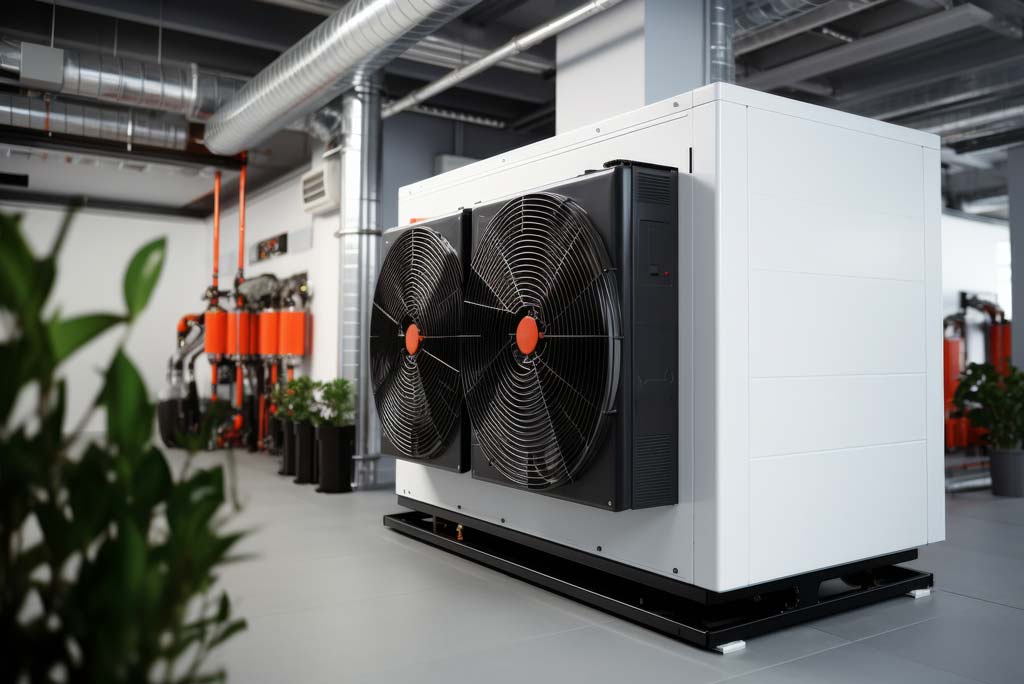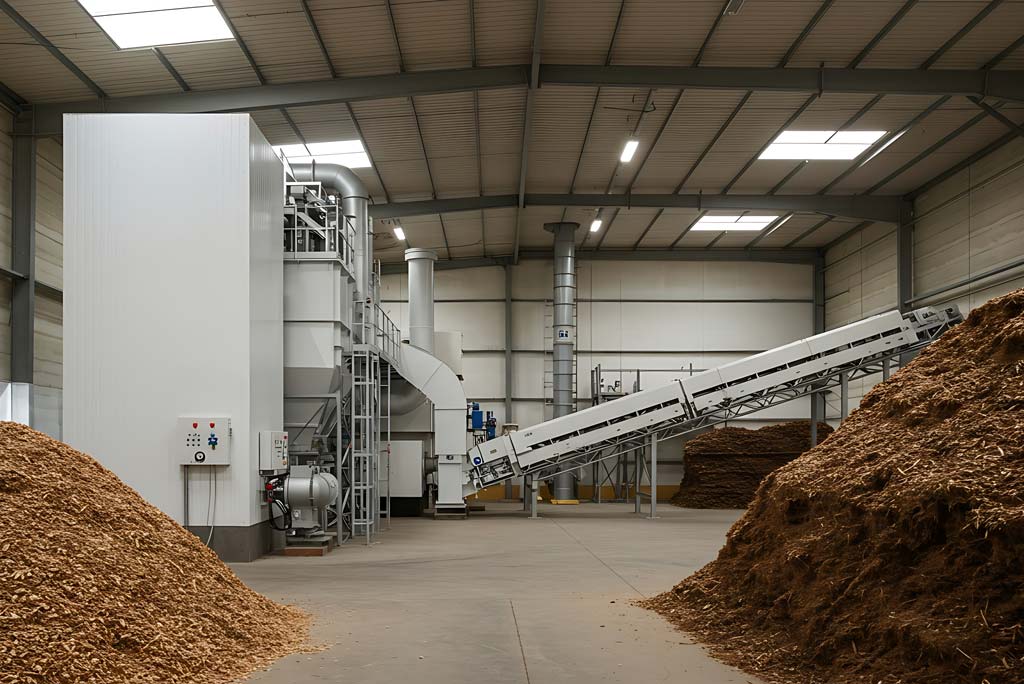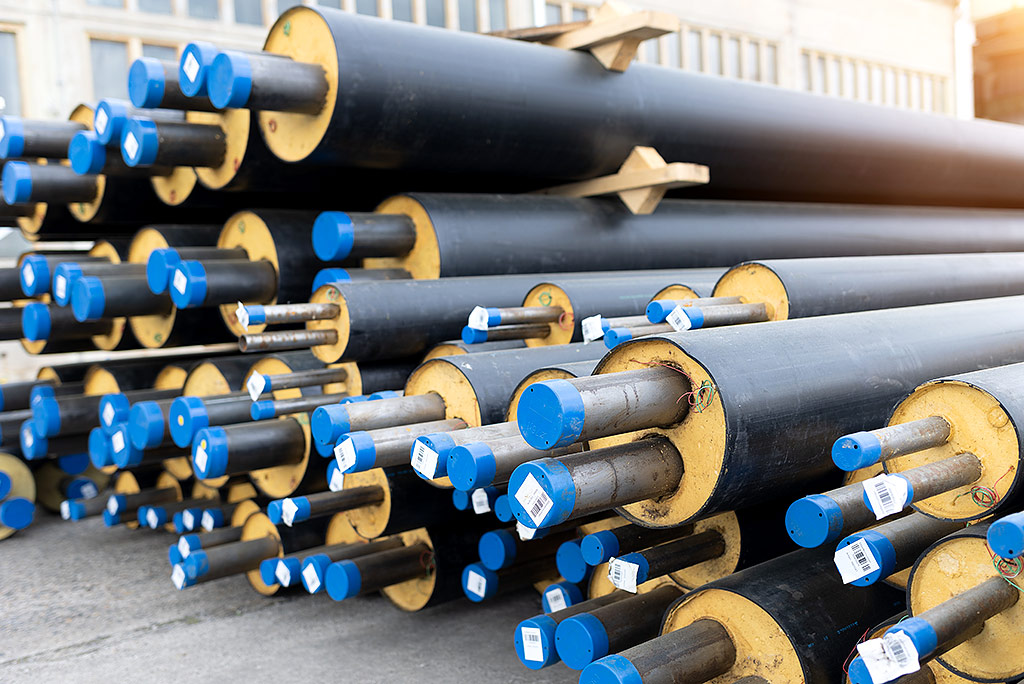360° heating expertise
within the KONZMANN companies
Heat with a system – customized heating technology for every need
The subsidiaries of the KONZMANN Group stand for innovative, energy-efficient, and sustainable heating and thermal solutions. Each system is individually tailored to meet the requirements of customers from industry, commerce, the public sector, and private households – with comprehensive service and state-of-the-art technology from a single source.
Heating technology in industry, commerce, and public sector projects is currently undergoing a transformation. New regulations from the EU and Germany are accelerating the move away from fossil fuels and placing greater emphasis on efficiency, climate protection, and the use of renewable energy sources.
The subsidiaries of the KONZMANN Group master the full range of modern heating and thermal technologies and deliver customized solutions for every requirement and customer group – from planning through to operation.
Heat pump technology
KONZMANN is a specialist in heat pump technology. These systems harness environmental heat from air, ground, or water and convert it into heating energy using electricity – enabling sustainable and climate-friendly heating. When combined with photovoltaic systems, self-generated electricity can be maximized, further improving the CO2 balance. Modern large-scale heat pumps already enable the decarbonization of industrial processes and the supply of entire building complexes.
- Very high energy efficiency
- Low operating costs
- Reduction of CO2 emissions
- Independence from energy providers
Fuel-based heating technology for pellets or biomass
The subsidiaries of the KONZMANN Group have extensive experience in implementing automated heating systems based on renewable raw materials such as wood pellets or wood chips. These technologies provide particularly economical and CO2-neutral heating solutions when sourced from sustainably managed forests in regions rich in raw materials. The efficient combustion of biomass for heat generation offers a wide range of applications, including the production of industrial process heat.
- Use of renewable raw materials
- CO2-neutral with sustainable forestry
Combined heat and power plant (CHP)
KONZMANN, through its subsidiaries, offers extensive expertise in the planning, construction, and operation of combined heat and power plants. These systems generate both electricity and heat simultaneously (cogeneration) and typically operate on gas, biogas, or other fuels.
- High efficiency
- Flexible application possibilities
- On-site power utilization
Hybrid systems
KONZMANN designs and implements customized hybrid systems that intelligently combine various heat generators, such as heat pumps with gas condensing boilers or solar thermal systems. Hybrid systems offer maximum flexibility, high supply security, and optimal energy efficiency – ideal for existing buildings as well as for variable requirements in industry and commerce.
- Maximum flexibility
- High supply security
- Optimal energy efficiency
District heating and local heating systems
The subsidiaries of the KONZMANN Group plan and implement systems for central heat generation and distribution via pipe networks. These systems supply multiple buildings or entire districts. Space-saving and low-maintenance district heating transfer stations ensure maximum supply security. Heat from power plants, large-scale heat pumps, or biomass plants is transported to consumers through pipe networks, with smart transfer stations efficiently regulating heat distribution and output. KONZMANN subsidiary WEGA has particular expertise in this specialized field.
- Space-saving
- Low maintenance
- High supply security
- Use of waste heat or renewable energy possible
Solar thermal energy
KONZMANN specializes in the planning and implementation of solar thermal systems. Solar thermal energy supports heating and domestic hot water production using solar energy and can be easily integrated into new or existing systems. Solar thermal systems help to permanently reduce the consumption of fossil fuels.
- Environmentally friendly
- Low operating costs
- Reduction of fossil fuel usage
- Easy integration into existing systems
Conventional heating technology and condensing technology
KONZMANN has extensive expertise in gas and oil condensing systems and continues to offer service and modernization for gas and oil heating systems. At the same time, we actively support the transition to more sustainable solutions. State-of-the-art gas and oil condensing systems offer high efficiency by utilizing waste heat. This technology provides proven supply reliability and is a highly efficient solution for existing systems, peak load coverage, or as a transitional solution – especially in industrial and commercial settings.
- Proven technology
- High supply reliability
- Fast availability
Innovative advantages with heating and thermal technology from the KONZMANN Group
Comprehensive, innovative solutions
The KONZMANN Group, through its subsidiaries, offers a complete 360° range of services—from consulting and planning to installation, service, and maintenance—all from a single source. Services and solutions are tailored individually to meet the needs of customers from industry, commerce, public sectors, and private households. The focus lies on innovative technologies such as heat recovery, alternative and renewable energy sources (e.g., solar thermal, wood pellets, wood chips), as well as the integration of cutting-edge building automation for maximum energy efficiency and sustainability.
Increase in energy efficiency and decarbonization
Tailored solutions for every industry
The subsidiaries of the KONZMANN Group offer customized solutions for clients from industry, commerce, public sector, and private households. From planning to implementation of efficient heating plants, hall heating systems (including warehouses, production halls, logistics centers), and process heat solutions, systems are realized according to the latest state of the art.
Comprehensive service and digital monitoring
24/7 service and remote monitoring of systems form the foundation of the KONZMANN Group subsidiaries’ performance, ensuring maximum operational reliability and rapid response times. Regular maintenance and digital services also guarantee smooth, efficient operation and extend the lifespan of heating systems.
Future-proof and sustainable energy solutions
Heat Pumps and Large Heat Pumps
Heat pumps are the cross-industry standard technology for decarbonizing heat supply. A wide range of capacity sizes enables diverse applications in industry, commerce, public institutions, as well as in larger buildings like apartment complexes. Large heat pumps, in particular, are suitable for high power demands in industrial processes and bigger properties. Combined with photovoltaic systems, efficiency, cost-effectiveness, and climate-friendliness can be significantly optimized. Users thus benefit from a future-proof solution that reduces energy costs, lowers emissions, and decreases dependence on fossil fuels.

Advantages
- Very high efficiency
- Low operating costs through the use of free environmental energy and low maintenance requirements
- Low CO2 emissions, especially when operated with green electricity or own solar power
- Great flexibility
- Numerous funding opportunities
- Compliance with legal requirements and climate targets
Relevance for customers from industry, commerce, and the public sector
- Maximum application range from office buildings, hospitals, hotels to production halls
- Process heat supply of up to 120 – 150°C for industrial applications
- Efficiency increase through waste heat utilization
- Sustainable and ecological heat solutions for buildings and properties in the public sector
- Efficient coverage of fluctuating heating and cooling demands using cascade control
Advantages of combining photovoltaic and heat pump
- Cost reduction through self-generated electricity use
- Possible CO2-free energy supply
- Increase in grid independence
- Sector coupling promotes flexibility in the energy system and supports the integration of renewable energy
- Power-to-Heat (PtH) converts excess green electricity into heat, for example
Hybrid systems
Hybrid heating systems and plants are innovative solutions that combine the advantages of different heating technologies to ensure more efficient and environmentally friendly heat supply. These systems typically use a combination of renewable energies, such as heat pumps or solar thermal systems, and conventional heating methods, such as biomass, gas, or oil condensing boilers.
The main advantages of hybrid heating systems are flexibility, cost-effectiveness, and environmental friendliness, as the technology and performance can always be used that are optimally suited to the respective requirements. Especially for applications in industry and commerce, where fluctuating heat demand often prevails, hybrid systems provide optimal solutions.
Advantages
- The use of renewable energy sources in hybrid systems can increase efficiency, reduce CO2 emissions, and lower operating costs.
- Coupling of different systems creates maximum flexibility.
- Reduce dependence on fossil fuels.
- Compliance with legal requirements and climate targets.
- Individual adaptability to building changes and user behavior.
- Industry and commerce use the possibilities of intelligent system combinations to optimize the efficiency of heating and process heat.

Solid Fuel Heating Technology
Solid fuel heating technology refers to systems and installations that use fuels such as firewood, pellets, wood chips, or other biogenic energy sources. Typical systems include wood gasification boilers, pellet boilers, and combination boilers, which are mostly used as central heating systems. Modern installations operate automatically, efficiently, and with low emissions.

Advantages
- Use of renewable, regionally available raw materials such as wood or biomass
- High efficiencies of over 90% with wood gasifiers and pellet boilers
- High user convenience thanks to automated fuel supply and power control in pellet and combination boilers
- Contribution to independence from fossil fuels and reduction of CO2 emissions
- Numerous funding opportunities
- Compliance with legal requirements and climate targets
Relevance for customers from industry and commerce
- Sustainable and highly flexible process heat solutions for industry and commerce
- Ideal solution when regional biomass is available
- Hotels, agricultural businesses, and commercial enterprises implement sustainable heating concepts with pellet and wood chip heating systems
- Compliance with legal requirements for low-emission systems and the provision of at least 65% renewable energies
District and district heating systems
Local and district heating systems are central solutions for supplying larger units such as industrial plants, commercial areas, or municipal buildings with heating and hot water. The heat is generated in a central plant—often by combined heat and power plants (CHP), large heat pumps, the use of waste heat, or renewable energies like biomass and solar thermal—and distributed via insulated pipeline systems to the connected buildings. While district heating usually serves urban areas with extensive networks, local heating is designed for smaller units or neighborhoods.
Local and district heating systems are particularly future-oriented, efficient, and sustainable solutions for energy supply in industry and commerce, offering both economic and ecological benefits.
Advantages
- High efficiency due to centralized heat generation and distribution
- Efficiency boost through the use of waste heat from industrial processes
- Sustainability and reduction of CO2 emissions by using renewable energies and industrial waste heat
- Reduction of dependence on fossil fuels
- Space savings by eliminating the need for individual boilers, fuel storage, and chimneys
- High supply and operational reliability through the use of multiple fuel types and redundancies in the central plant
- Future-proofing through flexible adaptation to new, sustainable energy sources
- No investment costs for own heating systems
- Compliance with legal requirements and climate targets
- Numerous funding opportunities
Relevance for customers from industry and commerce
- Additional energy efficiency and cost-saving potentials for industry and commerce by feeding their own waste heat from production processes into the heat network
- Cost and space savings through the elimination of own heating systems and associated operating costs
- The costs for the central plant are distributed among all users, reducing the financial burden
- Use of renewable energies and reduction of CO2 emissions help to comply with legal requirements such as the Building Energy Act (GEG) and to secure funding
- Valuable contribution to the energy transition through the integration of renewable energies and their efficient use

Special Heating and Thermal Technologies for Industry and Halls
For industrial and hall heating, various specialized systems are available that efficiently, economically, and demand-orientedly heat large and high spaces. Since 2024, legal regulations require an increasing share of renewable energies such as green electricity, hydrogen, or bio-liquefied gas, which can be implemented particularly efficiently using radiant heaters (infrared), surface heating systems, as well as modern heat pumps and hybrid systems that can flexibly adapt to individual process and temperature requirements.
Infrared heating
These systems do not heat the air but directly warm the objects in the room, such as machines, components, and people. These objects store the heat and slowly release it again. This creates a comfortable, draft-free indoor climate with reduced dust circulation and low operating costs.
Advantages:
- High efficiency
- Short warm-up times
- Zonal heating possible
- Pleasant warmth sensation
- Quiet operation
- Reduction of energy consumption and CO2 emissions
Warm air generators
Warm air generators draw in air, heat it using gas or oil, and then direct the warm air straight into the space to be heated. Modern units use condensing technology for higher efficiency.
Advantages:
- Ideal for halls with frequent air exchange, such as those with large doors
- Can be combined with other ventilation systems
Surface heating systems (e.g., underfloor and wall heating)
Surface heating systems include underfloor, wall, or ceiling heating, in which flat piping systems embedded in building components are supplied with warm water or air. These systems heat the components, which in turn emit radiant heat across a large surface.
Advantages:
- Even heat distribution
- Low supply temperatures (e.g., 35 °C)
- Can be combined with heat pumps, also suitable for cooling
- Particularly cost-effective when used with renewable energy sources (e.g., heat pumps)
24/7 Service and
comprehensive monitoring!
We’re always here for you: You can reach us via our service number 24 hours a day, 365 days a year. Optionally, we offer remote monitoring or building management systems to keep a watchful eye on your property.
- 24/7 service for rapid assistance
- Maintenance and servicing for long-term operational reliability
- Remote monitoring or building management systems